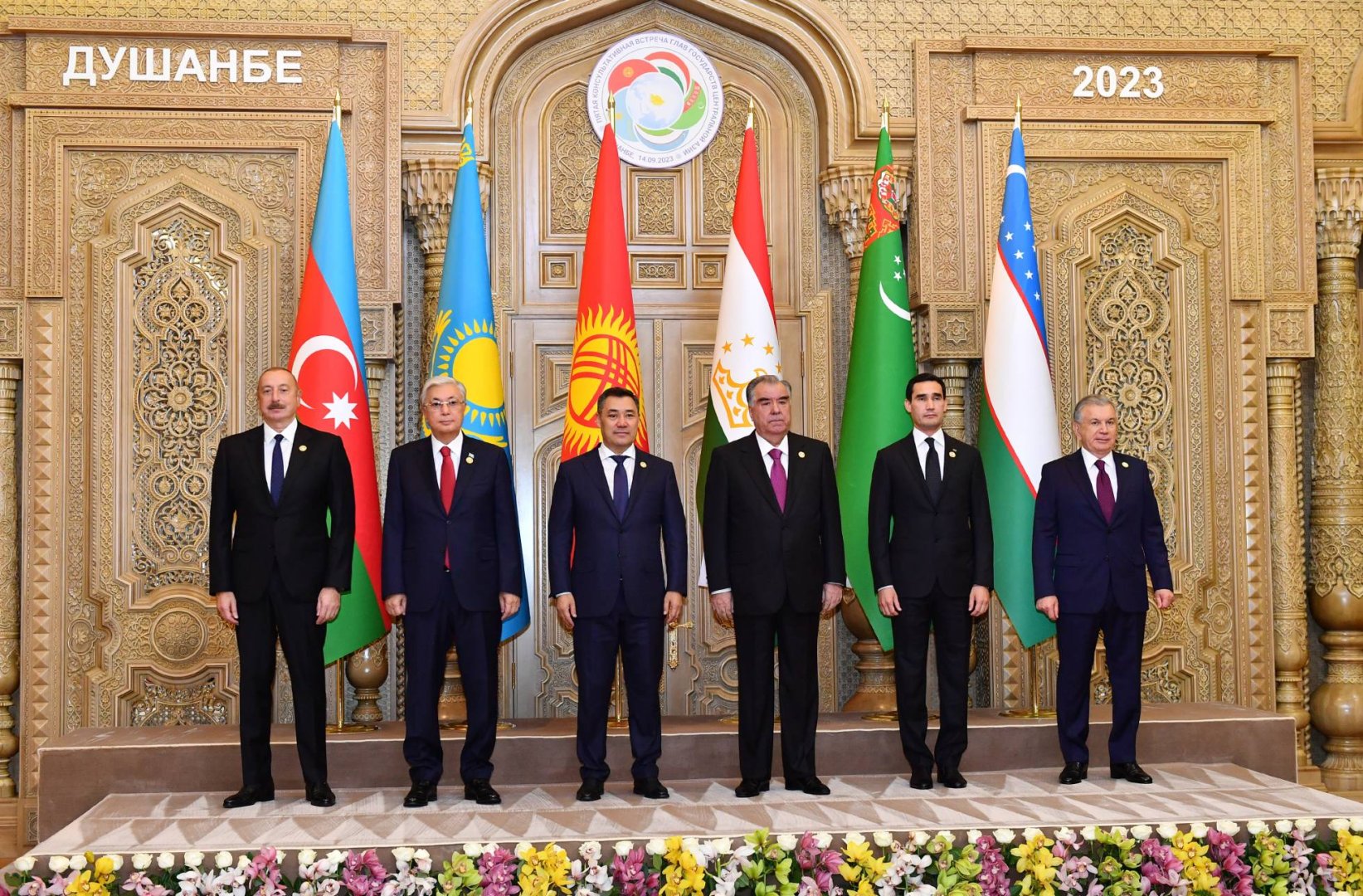The 7th Consultative Meeting of the Heads of State of Central Asia will take place in Tashkent on 15-16 November 2025. Among the invited leaders is President of Azerbaijan Ilham Aliyev - a fact that in itself reflects the profound transformation of the region’s political geography. Azerbaijan has emerged as a key link in the trans-Eurasian architecture of security, economic cooperation and transport.
Azerbaijan as a transit corridor has become central for all Central Asian countries seeking reliable routes to European markets. The Middle Corridor - built on Azerbaijan's infrastructure, including the Port of Alat, the Baku-Tbilisi-Kars railway, and an expanding network of international airports - has become the only stable transport artery between Asia and Europe. Amid shifting geopolitical realities, Baku now provides Central Asian states with a secure, predictable and dependable route for trade and energy flows. With this in mind, President Ilham Aliyev’s participation in the Tashkent meeting is not a diplomatic gesture but a practical necessity for all countries in the region.
Ahead of his visit, President Ilham Aliyev was interviewed by Uzbekistan National News Agency, reaffirming that Azerbaijan views cooperation with Central Asia as strategic and long-term. The pace of contacts speaks for itself: over the past three years, Central Asian leaders have made around 30 visits to Baku, while the President of Azerbaijan has visited the region 13 times. This is one of the most intensive diplomatic tracks in Eurasia, helping shape a stable political platform across the Turkic world.
Uzbekistan holds a special place in this dynamic - a relationship President Ilham Aliyev describes as reaching the level of an alliance. The personal trust between Ilham Aliyev and Shavkat Mirziyoyev has long moved beyond formal protocol. Two reciprocal state visits, dozens of signed agreements, the creation of a High Intergovernmental Council, and the adoption of a Roadmap on Allied Relations through 2029 have produced a unique model of cooperation, where political trust is backed by real economic and infrastructure projects. A striking symbol of this partnership is the Mirzo Ulugbek School, built by Uzbekistan in liberated Fuzuli in 2023 - a gesture that cemented a new level of brotherhood based on solidarity and mutual respect.
Economic cooperation is expanding at record pace. In 2024, bilateral trade reached $252 million, and in the first ten months of 2025 it climbed to $319 million - an 87% increase. The joint investment company with capital of $500 million has become a catalyst for projects not only in the two countries but also in third markets.
One of the most important joint projects is the BusinessTex JV textile factory in Khankendi - a symbol not only of Karabakh's post-war development but also of the trust underpinning bilateral ties. The plant already produces 2,500 items a day, with plans to raise output to 10,000 and export up to 80% of production. It has become a model of how Uzbek investment can support the reconstruction of liberated territories.
Transport remains a key area of cooperation. Azerbaijan provides Central Asian states with unique transit opportunities, while Uzbekistan is rapidly increasing exports via the Middle Corridor. Transit volumes exceeded 1.3 million tons in 2024 and reached 1 million tons in the first nine months of 2025, showing steady growth. President Aliyev also underlined that, once opened, the Zangezur Corridor will become a new driver of trade, creating a direct connection between Central Asia, Türkiye and the Mediterranean.
Energy cooperation is gaining particular significance. Uzbekistan imports Azerbaijani oil and petrochemicals, and both countries are implementing joint projects in digitalising the oil and gas sector and developing green energy. The trilateral agreement signed in Baku at COP29 between Azerbaijan, Kazakhstan and Uzbekistan to develop green energy corridors opens a new chapter in energy cooperation. In effect, it represents the creation of a unified energy space among Turkic states, geared toward exporting renewable electricity to Europe.
Humanitarian ties are growing just as fast. Shared Turkic roots, cultural and historical closeness, and religious affinity make cooperation in culture, science, education and youth policy natural and organic. Active engagement within the Organization of Turkic States is shaping a shared space of identity, with Azerbaijan and Uzbekistan acting as key drivers of integration.
Looking ahead, the Azerbaijan-Central Asia partnership is set to strengthen further. Baku offers its partners infrastructure, investment, energy, logistics, technological solutions and political stability. Central Asia, in turn, has become an essential part of Azerbaijan’s foreign policy, widening its circle of allied relationships across the Caspian.
Azerbaijan today is one of the main centres of influence in the Turkic world and a crucial partner for Central Asia. As President Aliyev stressed in his interview, he is confident that the upcoming meeting will be a significant stage in fostering the centuries-old friendship between our fraternal peoples and expanding multi-level cooperation in the political, economic, transport, investment, energy, cultural and humanitarian spheres, and in the field of digital transformation.
At a time when Eurasia’s regional architecture is rapidly evolving, Ilham Aliyev's role in deepening cooperation between Azerbaijan and Central Asia has become especially prominent. His focus on expanding transport and logistics connectivity, advancing energy partnerships, and shaping a shared economic space has made Baku a key centre linking the Caspian, Central Asia and Europe. Thanks to Ilham Aliyev's strategic vision, Azerbaijan has become a reliable partner for the region’s states, offering them stable routes, new opportunities for trade and a platform for political dialogue. It is this approach that has elevated Azerbaijan's relations with Central Asian countries to a level of long-term trust and mutual benefit, reinforcing Baku's role in shaping a new era of Eurasian connectivity.







